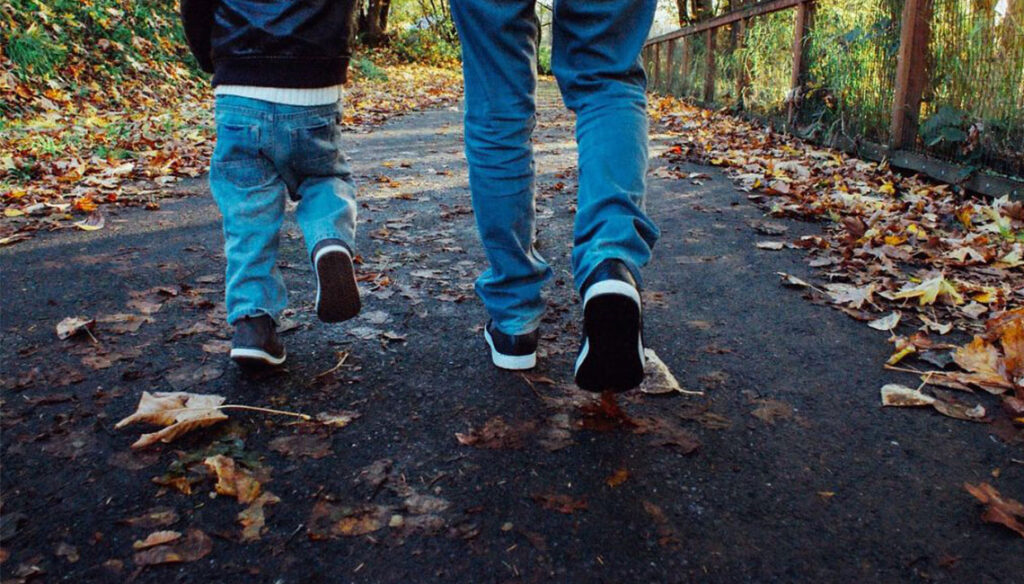
The loss of a child is a heartbreaking experience for many fathers and mothers; however, in the context of migration, the pain is even greater. The helplessness of not being close to them in the event of an accident or illness becomes all-consuming, in addition to a deep feeling of guilt arising.
Despite there being no reason, various thanatologists understand that, in the face of such enormous grief—and even after a long time—the physical absence does not extinguish the love for a deceased child and, therefore, they will be mom and dad forever.
Grieving the loss of a child begins long before
When a son or daughter who has left their country is in serious health condition, has an addiction or is a victim of deep depression, parents begin to experience anticipatory grief. Indignation and guilt also arise for not having foreseen the event, for not having “taken enough care of that child,” even from a distance.
The days go by in the midst of great anguish and other activities lose relevance. Fathers and mothers work only to send money or to travel to the place where their child lives and take care of them. They suffer notable physical and mental wear and tear. The pain is daily and permanent.
Without a doubt, decisions are of great importance in this process, since projects change and life will never be the same. It is important to accept that you cannot have control of all situations and parents must trust doctors. It is also important that they are prepared to stop treatments that are causing too much suffering when the time comes.
Now, during the process, it is necessary to know how to ask for help from family and friends to take care, have rest and recreational moments. In a foreign country, approaching the Latin American community can be a valuable accompaniment, especially if we are not yet familiar with the functioning of health systems.
It may seem unthinkable at times like this, but it is necessary to accompany the child in the process of his illness.
Preparation in pediatric palliative care
Faced with a terminal diagnosis, some families decide to stay in the hospital, while others prefer to be at home. To do this, they decide to hire people trained in medical treatments or pediatric palliative care—or prepare themselves. This prevents the children from suffering and their fragile bodies from being constantly intervened on.
The Pan American Health Organization and the World Health Organization declared palliative care as an alternative to improve the quality of life of patients and their families. It includes the prevention and relief of suffering through the early identification, evaluation and treatment of pain, physical, psychological and spiritual problems.
Palliative care integrates resources that help parent caregivers to include siblings in conversations, so the entire family can communicate about it, express emotions, feelings, and say goodbye.
As long as it is possible to participate in activities of all kinds with the sick brother, it is ideal to keep him so that his last days are better. Likewise, it is important to talk about grief to children and not exclude them from this entire process. The patient, no matter how young, has the right to decide about his or her medical treatment and express concerns about his or her own life.
How to continue living after the loss of a child?
Faced with the inevitable, whether due to a long illness or sudden death, caregiver parents die a little too; They are left in the middle of unbearable pain and have to learn to live again and find meaning to continue. Therefore, we offer you these tools that will give you comfort in the loss of a child who migrated.
- Remember that each person lives a unique grief, it is personal and timeless and there are no “correct” ways to do it. Don’t blame yourself for it, you have the right to protest what you’ve been through.
- Find a supportive community (family or true friends). At first, you will want to live your suffering alone, but some testimonies confirm that groups of parent caregivers, who have lived similar experiences and have built communities of empathy, are of great help.
- Respectfully consider organ and tissue donation. If you think about it, it is the only scientific certainty there is about transcendence and it is an act of infinite generosity.
- Farewell rituals personal are of great help for the grieving process. Don’t walk away from your spirituality. Take walks in nature, rest, feed your body, be patient, and don’t let depression get to you; If so, seek help from mental health specialists.
- We suggest reading Marcelo Rittner’s (2020) When Love Is Stronger than Death. Mexico: Grijalbo. A companion book for grieving parents, available in all formats.
At Del Pueblo Funeral Home we share that the loss of a child causes the greatest and most intense suffering—which has made it impossible to name it. However, it will give you a new definition of your parenthood and love will return to you in a different form. We remind you that we make difficult times easier.
